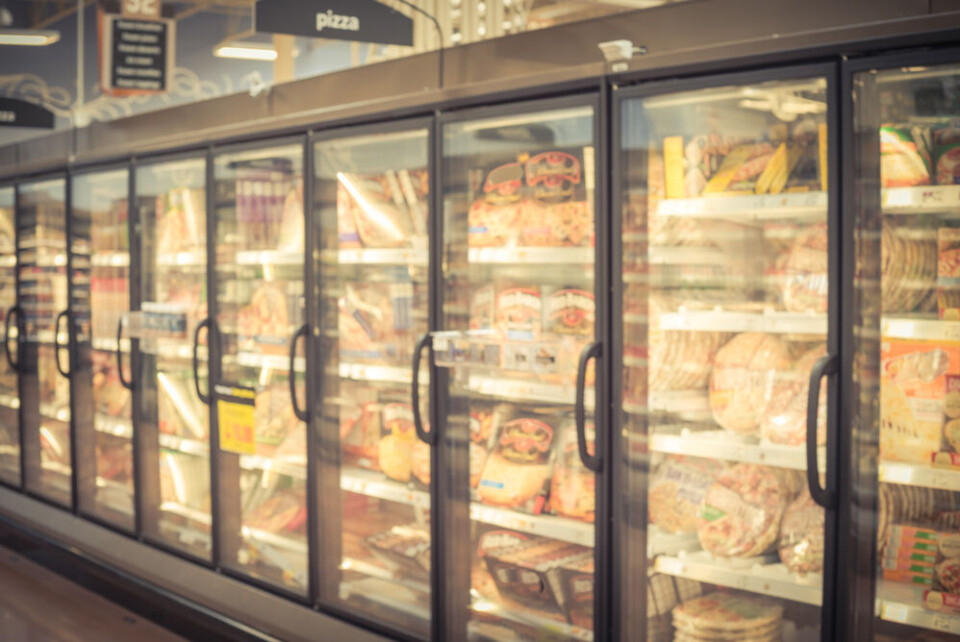-
Hospital fees set to increase in France: how will patients be affected?
Plans to save €400 million from social security spending targets several flat fees
-
New pink number plates in France lead to more police road checks
The plates are designed to enhance visibility and deter fraud
-
Alder pollen spike leads to warnings across most of France
Parts of the south-west at highest risk. Cypress pollen is also present along French Riviera
Food additives linked to 15% higher cancer risk, say French scientists
The study is the ‘first of its kind’ but could be used to ‘change regulations on the use of additives in the food industry’, its authors say

Certain additives that are used to improve the texture and shelf life of food could increase the risk of cancer by 15%, a new study by French researchers has found.
Cancer is the main cause of death among men in France and the second leading cause among women, after cardiovascular disease.
The new study, by researchers from research institutes Inserm and Inrae was published in the scientific journal PLOS Medicine on February 13, and was the "first observational study of its kind", said Inserm in a press release.
The report suggested that there could be a significant link between consuming foods that contain emulsifiers, and a higher risk of cancer, including of the breast and prostate.
Many common processed products contain emulsifiers and additives, including sweets, patisserie, chocolate bars, and ready meals. These include E471, E407, and E407a.
They are used to improve the appearance, texture, flavour, and shelf life.
The authors of the study analysed data submitted online by 92,000 people in France. Of the participants, 79% were women, and had participated in a wider study between the years 2009 and 2021.
All participants had - on at least three occasions - reported the food and drink that they had consumed in the past 24 hours (including their brands), so that the researchers could identify those containing emulsifiers.
The participants’ health was then reviewed over an average of seven years, with 2,604 cases of cancer diagnosed in that time.
Higher cancer risk
The results showed that there was a 15% higher risk of cancer in people who consumed the most products containing monoglycerides and diglycerides of fatty acids (called E471 on the packaging), compared with people who consumed the least.
The association was even clearer for breast cancer (24%) and prostate cancer (46%).
There was a 32% increased risk of breast cancer in women who consumed the most carrageenans (E407 and E407a).
Read more: One glass of wine a day increases breast cancer risk
Inserm did say that because it was the first study of its kind, it was “not sufficient to establish direct causal links between the consumption of these emulsifiers and the development of cancer”. However, the results do “provide key new knowledge”.
Such knowledge could be used to change regulations on the use of additives in the food industry, “in order to better protect consumers”, said the main authors of the study, Dr Mathilde Touvier, director of research at Inserm, and Prof Bernard Srour, junior professor at Inrae.
Dr Touvier told FranceInfo last year that another similar study (from June 2023) had suggested a link between the high consumption of ultra-processed foods and an increased risk of obesity, cardiovascular disease and mental disorders such as depression.
"It is better to do without [these processed foods] if you can, and to cook at home. It is always better for your health," she said.
More cancer in France?
The new study comes just days after a cancer specialist in France warned that the number of people dying of cancer under age 65 was rising, with figures from health authority Santé publique France also showing that the number of cancer cases diagnosed has doubled since 1990.
Dr Eric Solary, former director of research at the leading French cancer research centre the Institut Gustave Roussy, said in an interview that there are “demonstrably more premature deaths from cancer” now than in previous decades.
He explained that there are “individual factors” that can contribute to cancer “which depend on lifestyle, such as food, which can be excessive”. He also said that alcohol, and “toxic products in the environment” can also play a role, as can a “lack of exercise”.
Yet, most cancers are still not preventable, he said. “40% of cancers can be prevented, the remaining 60% are very difficult to prevent,” he added.
He said that cancer is “never [caused by] a single factor, it is a combination of things”.
Cancer screenings in France
In France, routine screening is available for four of the most common types of cancer (breast, bowel, and cervical).
These are offered free to certain age groups (50-75 for breast and bowel; and for cervical, every three years between ages 25-29, and then every five years from age 30-65).
Prostate cancer screening is also available for men aged over 50, if your healthcare professional recommends it.
Related articles
Cancer deaths rising among under 65s in France, says specialist
Cancer expert alarmed by ignorance of risk factors in France
























